
Vibrant Wonders of Namba, Osaka
Namba, located in the heart of Osaka, Japan, is a bustling district that perfectly blends traditional Japanese culture with modern urban flair. This vibrant neighborhood is known for its electrifying energy, neon-lit streets, and an array of entertainment options that cater to all tastes. As you walk through Namba, you'll be greeted by the iconic Glico Man sign, a symbol of the area's lively spirit. The district is teeming with shopping arcades, trendy boutiques, and department stores, making it a paradise for shopaholics. Food lovers will find Namba to be a culinary haven. The area is famous for its street food, with Dotonbori Street offering a mouth-watering selection of local delicacies such as takoyaki (octopus balls), okonomiyaki (savory pancakes), and kushikatsu (deep-fried skewers). The vibrant atmosphere of the street food stalls, combined with the tantalizing aromas, creates an unforgettable dining experience. For a more traditional dining setting, visit the numerous izakayas and restaurants scattered throughout the district. Beyond shopping and dining, Namba boasts a rich cultural scene. The Kamigata Ukiyoe Museum provides a fascinating glimpse into the world of Japanese woodblock prints, while the Namba Yasaka Shrine offers a serene escape with its unique lion-head-shaped building. The district also features a variety of entertainment options, including theaters, karaoke bars, and nightclubs, ensuring that there is never a dull moment during your visit.
Local tips in Namba
- Visit Dotonbori Street at night to see the neon lights and try the famous street food.
- Shop at Shinsaibashi-suji, a covered shopping street with a mix of local and international brands.
- Experience a traditional Japanese theater performance at the Namba Grand Kagetsu.
- Take a leisurely stroll along the Dotonbori Canal for picturesque views and great photo opportunities.
- Don't miss the Kamigata Ukiyoe Museum for a unique cultural experience.
Vibrant Wonders of Namba, Osaka
Namba, located in the heart of Osaka, Japan, is a bustling district that perfectly blends traditional Japanese culture with modern urban flair. This vibrant neighborhood is known for its electrifying energy, neon-lit streets, and an array of entertainment options that cater to all tastes. As you walk through Namba, you'll be greeted by the iconic Glico Man sign, a symbol of the area's lively spirit. The district is teeming with shopping arcades, trendy boutiques, and department stores, making it a paradise for shopaholics. Food lovers will find Namba to be a culinary haven. The area is famous for its street food, with Dotonbori Street offering a mouth-watering selection of local delicacies such as takoyaki (octopus balls), okonomiyaki (savory pancakes), and kushikatsu (deep-fried skewers). The vibrant atmosphere of the street food stalls, combined with the tantalizing aromas, creates an unforgettable dining experience. For a more traditional dining setting, visit the numerous izakayas and restaurants scattered throughout the district. Beyond shopping and dining, Namba boasts a rich cultural scene. The Kamigata Ukiyoe Museum provides a fascinating glimpse into the world of Japanese woodblock prints, while the Namba Yasaka Shrine offers a serene escape with its unique lion-head-shaped building. The district also features a variety of entertainment options, including theaters, karaoke bars, and nightclubs, ensuring that there is never a dull moment during your visit.
Iconic landmarks you can’t miss
Dotonbori
Explore the vibrant Dotonbori district in Osaka, where neon lights, delicious street food, and lively entertainment create an unforgettable experience.
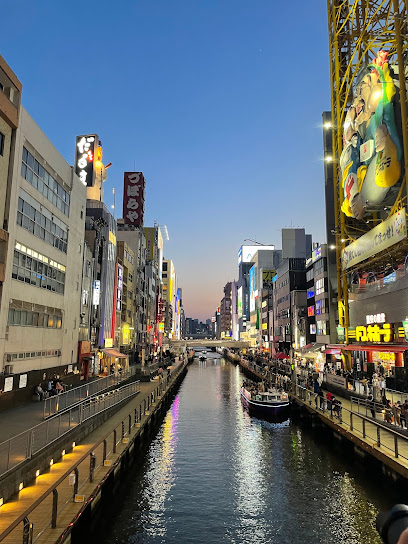
Dotonbori Glico Sign
Experience the vibrant energy of Osaka at the iconic Dotonbori Glico Sign, a cultural landmark surrounded by delicious street food and lively entertainment.
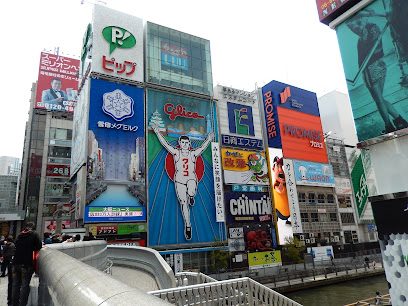
Namba Yasaka Jinjya Shrine
Discover the enchanting Namba Yasaka Jinjya Shrine in Osaka, where vibrant architecture meets serene spirituality, offering a unique cultural experience.
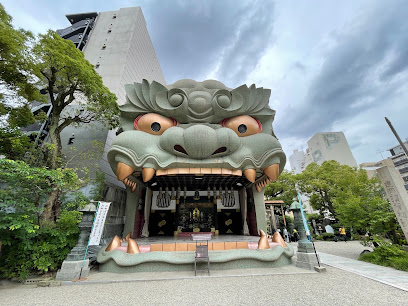
Hozen-ji Temple
Discover Hozen-ji Temple, a serene Buddhist sanctuary in Namba, Osaka, where tradition meets tranquility amidst the city's vibrant energy.
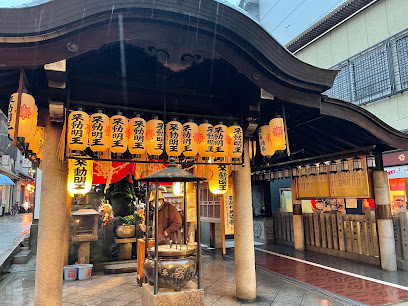
Naniwa-no-Miya-Ato Park (Naniwanomiya Palace Site Park)
Explore the historical treasures of Naniwa-no-Miya-Ato Park in Osaka, where ancient culture and serene landscapes await every visitor.
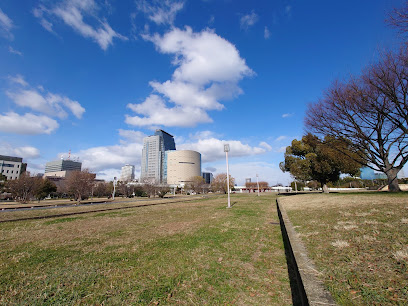
Tombori River walk
Experience the bustling charm of Tombori River Walk in Osaka, where vibrant street food, scenic views, and lively culture come together.
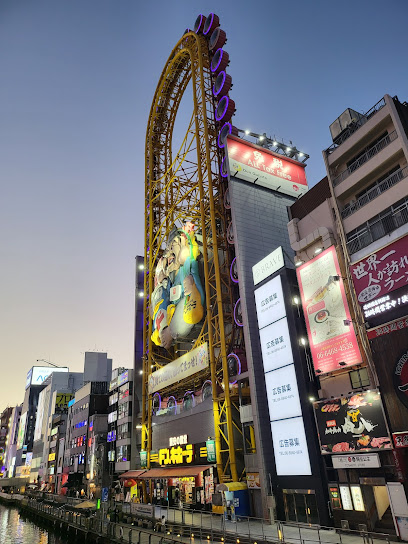
Ebisu Bashi-Suji Shopping Street
Discover the vibrant Ebisu Bashi-Suji Shopping Street in Osaka, where shopping, delicious street food, and local culture come together in a lively atmosphere.
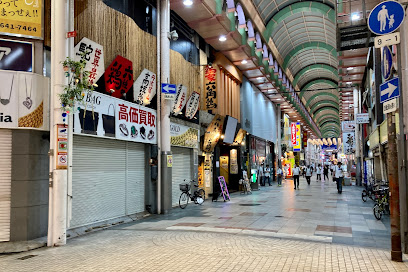
Hozenji Mizukake Fudoson Temple
Experience spiritual serenity at Hozenji Mizukake Fudoson Temple, a peaceful retreat in the heart of Osaka's vibrant Namba district.
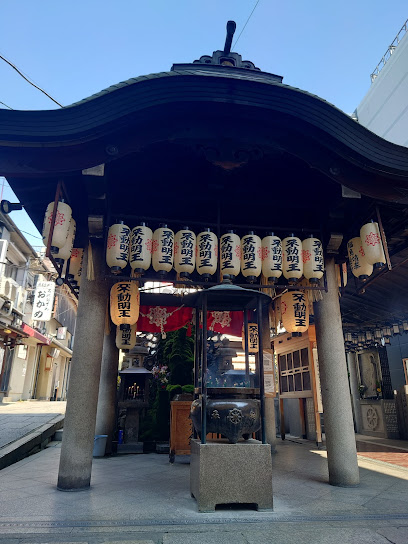
Hozenji Yokocho
Experience the enchanting blend of history and cuisine at Hozenji Yokocho, a must-visit gem in Osaka's vibrant Namba district.
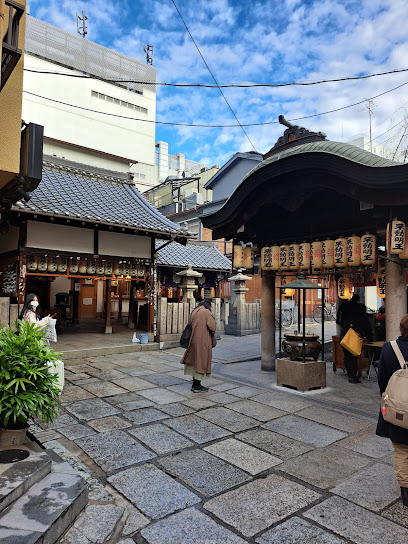
난카이난바 목적출구
Experience the perfect blend of shopping, dining, and nature at Namba Parks, Osaka's architectural marvel in the heart of the city.
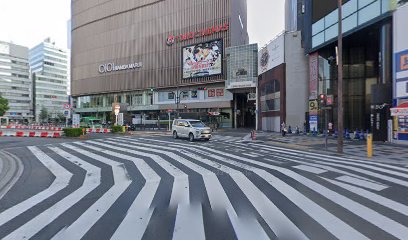
Unmissable attractions to see
Tsūtenkaku
Experience panoramic views and retro charm at Osaka's iconic Tsutenkaku Tower in the vibrant Shinsekai district. A must-see landmark!
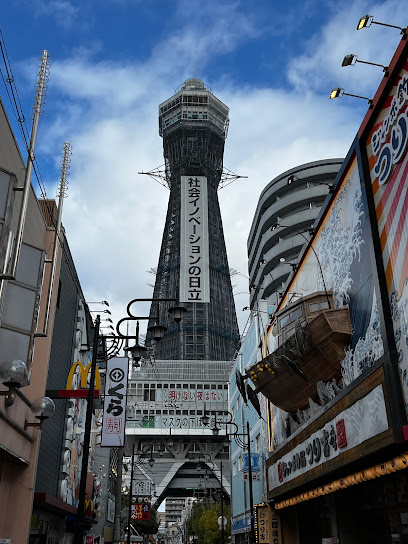
Tombori River walk
Experience Osaka's vibrant nightlife and delicious street food on the scenic Tombori River Walk in the heart of Dotonbori.
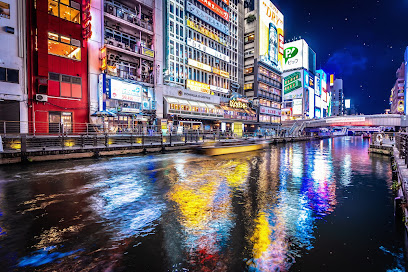
Kamigata Ukiyoe Museum
Discover the captivating world of Kamigata Ukiyoe: realistic woodblock prints of Kabuki actors in Osaka's vibrant Namba district.
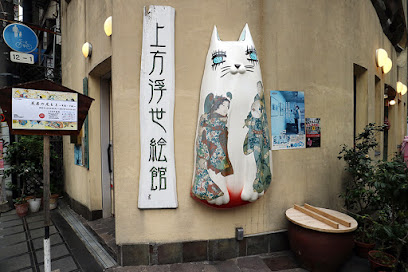
Namba-Sennichimae Park
Escape the city bustle at Namba-Sennichimae Park, a tranquil oasis in Osaka's vibrant Namba district.
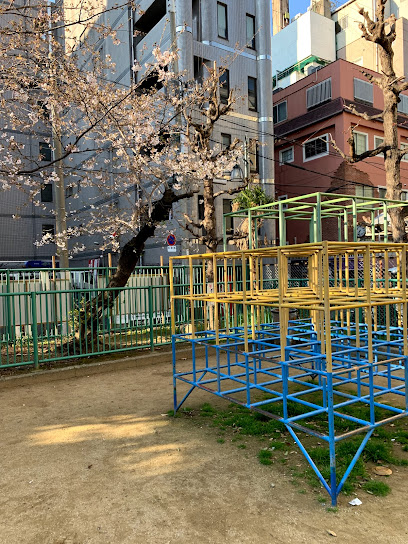
난카이난바 목적출구
오사카 난바의 중심, 난카이 난바 목적출구! 쇼핑, 식사, 관광을 한 번에!
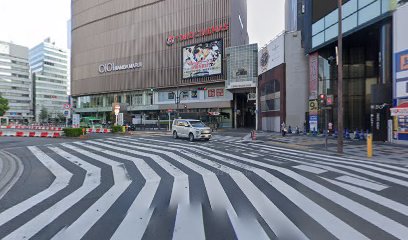
Essential places to dine
Jiyuken
Discover Jiyuken: A unique dining experience where traditional Japanese flavors meet Western culinary art in the heart of Osaka.
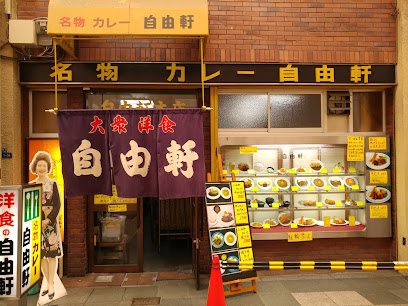
NAMBA DINING MAISON
Experience the rich flavors of Japan at Namba Dining Maison - where diverse cuisines meet in the heart of Osaka.
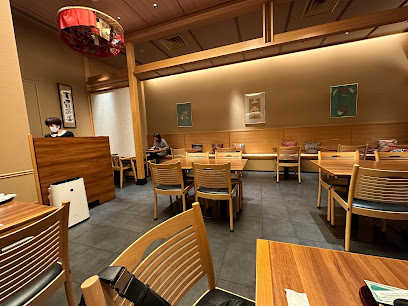
zojirushisyokudo
Discover the flavors of Japan at Zojirushi Shokudo in Osaka's vibrant Namba district - where tradition meets taste.
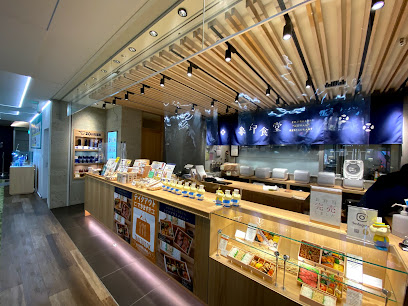
Hillman
Discover authentic Singaporean cuisine at Hillman Restaurant in Osaka, where bold flavors and fresh ingredients create an unforgettable dining experience.
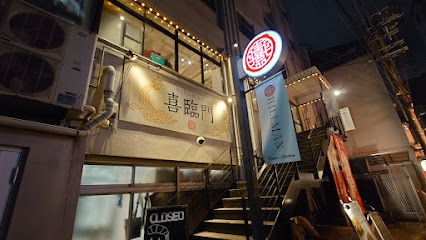
Ryan'arō
Experience authentic Singaporean cuisine at Ryan'arō in Osaka - a culinary journey through rich flavors and vibrant dishes awaits.
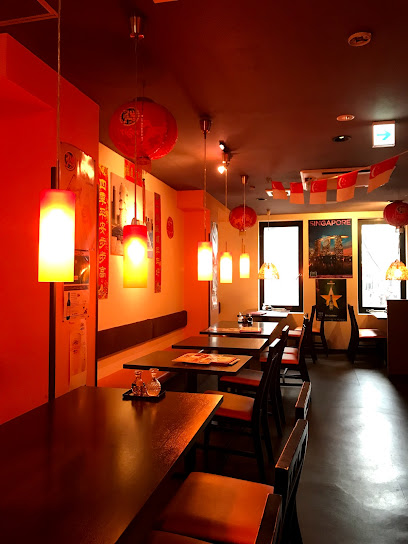
New Matsuzaka Nanbamidosujiten
Experience authentic Teppanyaki dining at New Matsuzaka Nanbamidosujiten in Osaka's lively Namba district.
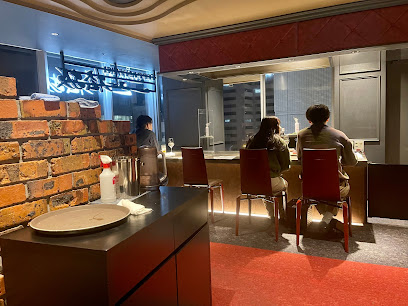
HANA-GOYOMI
Discover authentic Japanese cuisine at HANA-GOYOMI in Osaka's Swissotel Nankai – where tradition meets elegance and flavor.
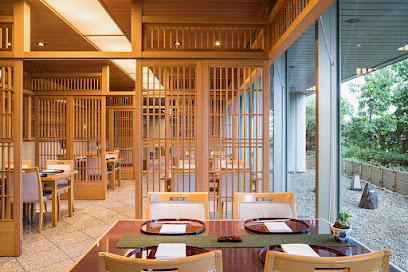
Tendon Makino
Experience authentic Japanese tempura at Tendon Makino in Namba, Osaka – where every bite is a celebration of flavor and tradition.
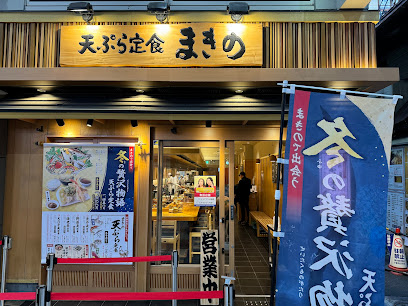
Matsusakagyu yakiniku
Experience authentic Japanese cuisine with exquisite Matsusaka beef at Matsusakagyu Yakiniku in Osaka.
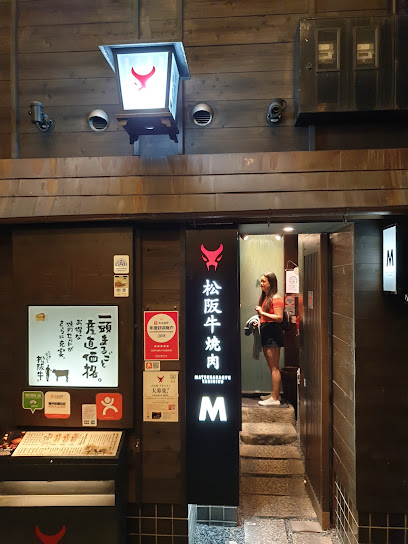
Kyukatsu
Discover Kyukatsu in Osaka - Savor expertly crafted Japanese beef cutlets in an inviting atmosphere that elevates your dining experience.
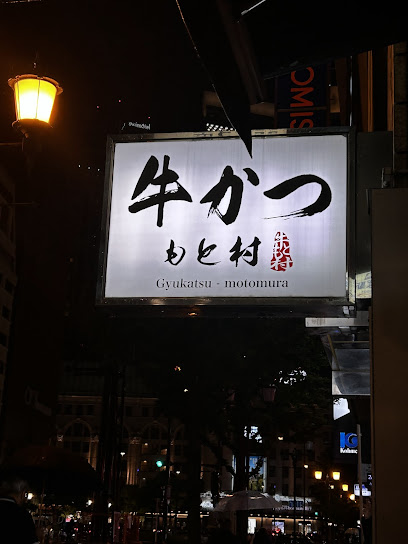
Markets, malls and hidden boutiques
Osaka Takashimaya
Explore Osaka Takashimaya: A shopper's paradise in the heart of the city, offering fashion, gourmet food, and unique souvenirs.

Namba City South Building
Explore Namba City South Building, Osaka's bustling shopping mall with diverse shops and delicious dining options for the ultimate urban experience.
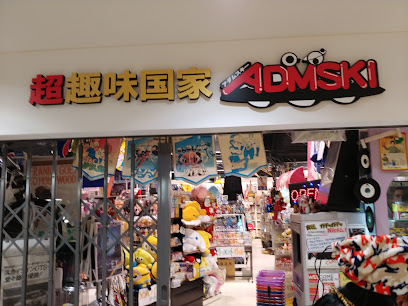
Namba Walk
Discover Namba Walk, Osaka's vibrant underground shopping mall, filled with diverse shops, delicious dining, and lively entertainment options.
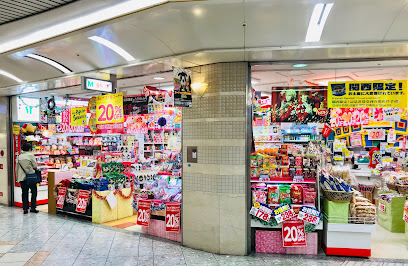
Rikuro’s Namba Main Branch
Experience Osaka's iconic cheesecakes at Rikuro’s Namba Main Branch, where tradition meets flavor in every slice.
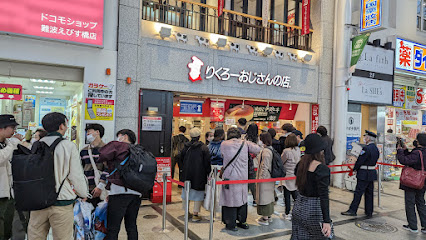
NAMBA SkyO
Discover NAMBA SkyO: A premier shopping mall in Osaka, blending local culture with modern retail experiences in the heart of the city.
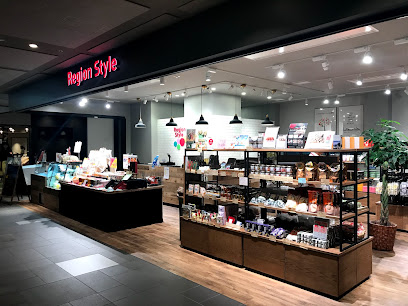
Ebisu Bashi-Suji Shopping Street
Explore the lively Ebisu Bashi-Suji Shopping Street in Osaka, where tradition meets modern shopping in a vibrant atmosphere filled with culinary delights.
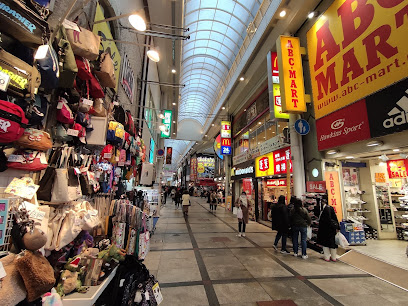
Sanrio Gift Gate
Explore Sanrio Gift Gate in Osaka for an unforgettable shopping experience filled with delightful gifts and adorable character merchandise.
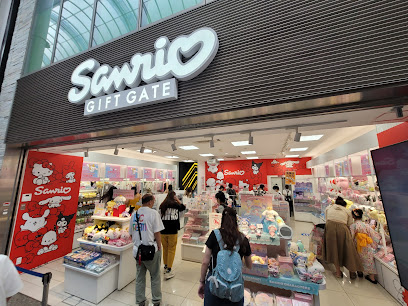
OGURAYA Co.,Ltd.
Explore authentic Japanese flavors and unique souvenirs at OGURAYA Co., Ltd. in Osaka's vibrant Namba district.
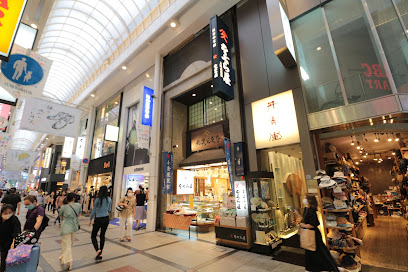
【Souvenirs】GOTO-CHI Namba
Explore GOTO-CHI Namba, Osaka's premier souvenir store offering a unique blend of traditional and modern Japanese treasures.
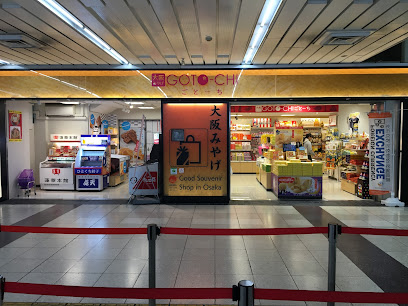
D.k
Explore D.k in Osaka for an eclectic range of unique gifts and souvenirs that celebrate Japan's rich culture and creativity.
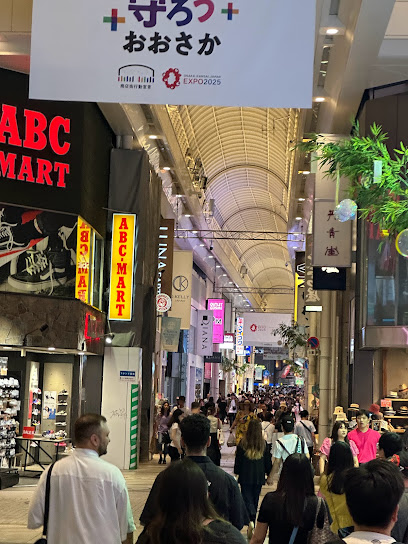
Essential bars & hidden hideouts
Dotonbori Riverside Grill Wonder
Experience the vibrant flavors of Dotonbori at Riverside Grill Wonder, where delicious meat dishes and refreshing drinks await in a lively riverside setting.
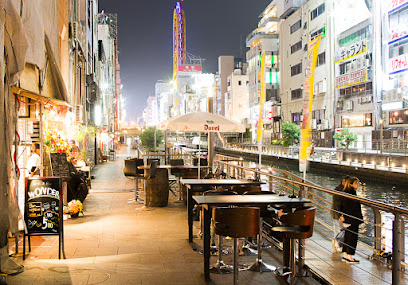
Bar Masuda
Discover the charm of Osaka's nightlife at Bar Masuda, where exquisite cocktails and a vibrant atmosphere await.
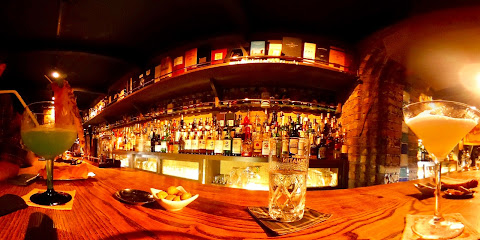
The Hearth Board Game Bar and Café. ザ・ハース ボードゲームバーとカフェ
Experience a unique blend of café culture and board gaming at The Hearth, Osaka's favorite spot for fun and relaxation.
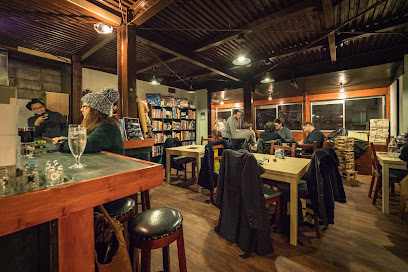
IRISH PUB DUBLIN BAY / DUBLIN GARDEN
Discover the vibrant atmosphere and authentic flavors at Irish Pub Dublin Bay, where Irish culture meets Osaka's charm.
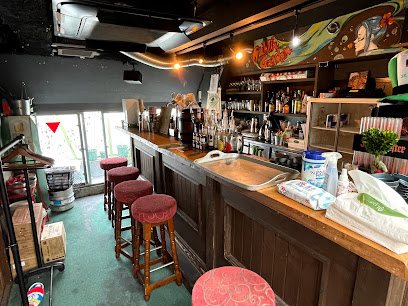
Bar Freedom - Just Japanese Whisky
Experience the finest Japanese whiskies in a cozy atmosphere at Bar Freedom, Osaka's premier whisky bar.
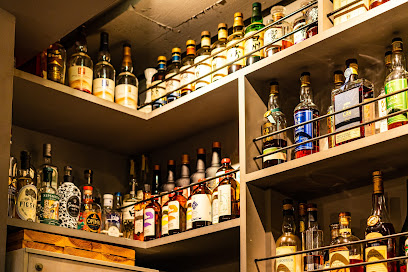
Subterra Cocktail Bar
Discover the charm of Subterra Cocktail Bar in Dotonbori, Osaka – where exquisite cocktails meet a cozy, stylish atmosphere.
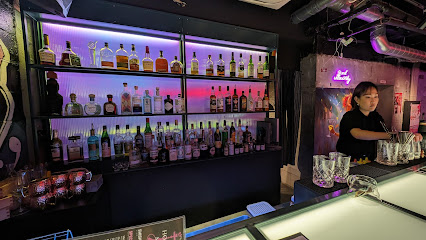
Little Long Beach
Discover Little Long Beach, a vibrant bar in Osaka where American cuisine meets exquisite cocktails and darting fun for a memorable night out.
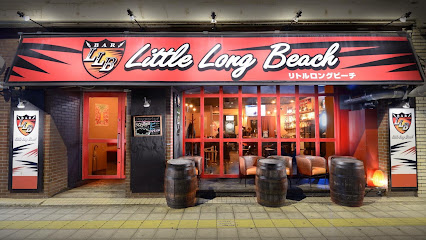
bar moon walk Nanbaten
Discover the vibrant nightlife of Osaka at Bar Moon Walk Namba, where friendly vibes and great drinks await in the heart of the city.
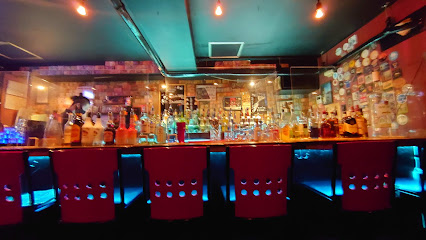
Bar Around the World Osaka
Discover innovative cocktails and a vibrant atmosphere at Bar Around the World in Osaka's lively Namba district, a must-visit for nightlife enthusiasts.
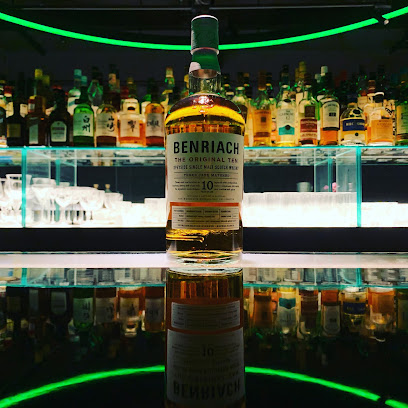
Bar Sou
Discover the art of cocktail-making at Bar Sou, Osaka's premier cocktail bar in the vibrant Namba district, offering an unforgettable nightlife experience.
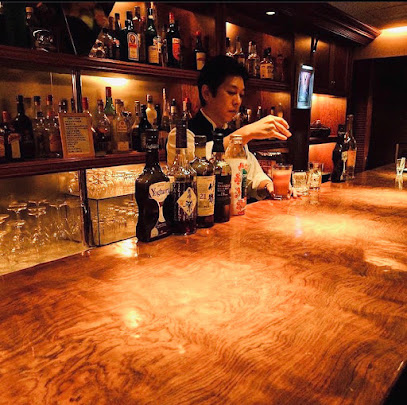
Local Phrases
-
- Helloこんにちは
[Kon'nichiwa] - Goodbyeさようなら
[Sayōnara] - Yesはい
[Hai] - Noいいえ
[Īe] - Please/You're welcomeどうぞ
[Dōzo] - Thank youありがとう
[Arigatō] - Excuse me/Sorryすみません
[Sumimasen] - How are you?お元気ですか?
[Ogenki desu ka?] - Fine. And you?元気です。あなたは?
[Genki desu. Anata wa?] - Do you speak English?英語を話せますか?
[Eigo o hanasemasu ka?] - I don't understandわかりません
[Wakarimasen]
- Helloこんにちは
-
- I'd like to see the menu, pleaseメニューを見せてください
[Menyū o misete kudasai] - I don't eat meat私は肉を食べません
[Watashi wa niku o tabemasen] - Cheers!乾杯!
[Kanpai!] - I would like to pay, pleaseお会計をお願いします
[O-kaikai o onegai shimasu]
- I'd like to see the menu, pleaseメニューを見せてください
-
- Help!助けて!
[Tasukete!] - Go away!去って!
[Satte!] - Call the Police!警察を呼んで!
[Keisatsu o yonde!] - Call a doctor!医者を呼んで!
[Isha o yonde!] - I'm lost迷子です
[Maigo desu] - I'm ill具合が悪いです
[Guai ga warui desu]
- Help!助けて!
-
- I'd like to buy...買いたいです...
[Kaitai desu...] - I'm just looking見てるだけです
[Miteru dake desu] - How much is it?いくらですか?
[Ikura desu ka?] - That's too expensiveそれは高すぎます
[Sore wa takasugimasu] - Can you lower the price?値段を下げてもらえますか?
[Nedan o sagete moraemasu ka?]
- I'd like to buy...買いたいです...
-
- What time is it?今何時ですか?
[Ima nanji desu ka?] - It's one o'clock1時です
[Ichiji desu] - Half past (10)10時半
[Jūji han] - Morning朝
[Asa] - Afternoon午後
[Gogo] - Evening夕方
[Yuugata] - Yesterday昨日
[Kinō] - Today今日
[Kyō] - Tomorrow明日
[Ashita] - 1一
[Ichi] - 2二
[Ni] - 3三
[San] - 4四
[Yon] - 5五
[Go] - 6六
[Roku] - 7七
[Nana] - 8八
[Hachi] - 9九
[Kyū] - 10十
[Jū]
- What time is it?今何時ですか?
-
- Where's a/the...?...はどこですか?
[...wa doko desu ka?] - What's the address?住所は何ですか?
[Jūsho wa nan desu ka?] - Can you show me (on the map)?地図で見せてもらえますか?
[Chizu de misete moraemasu ka?] - When's the next (bus)?次の(バス)はいつですか?
[Tsugi no (basu) wa itsu desu ka?] - A ticket (to ....)切符(までの)
[Kippu (made no)]
- Where's a/the...?...はどこですか?
History of Namba
-
Namba's history dates back to the 7th century, when it emerged as a vital center for commerce and trade in the Osaka region. Originally part of the ancient capital of Naniwa, it served as a gateway for merchants and travelers, facilitating the exchange of goods and ideas. The establishment of the Namba district coincided with the flourishing of the Rikuzen and Mutsu provinces, where the Namba canal played an essential role in transportation.
-
During the Edo period (1603-1868), Namba experienced significant urbanization as Osaka developed into a major commercial city. The area became known for its vibrant entertainment districts, including theaters and teahouses, attracting a diverse population. The famous Dotonbori canal was constructed during this time, becoming a cultural landmark and a hub for food and nightlife, which still thrives today.
-
The Meiji Restoration in the late 19th century brought about rapid modernization in Japan, and Namba was no exception. The introduction of railways and infrastructure improvements transformed Namba into a major transportation hub. This period saw the construction of iconic buildings, including the Namba Grand Kagetsu theater, which continues to be a center for traditional Japanese entertainment, particularly comedy.
-
Namba, like much of Osaka, suffered extensive damage during World War II. The post-war era necessitated a massive reconstruction effort. The rebuilding of the area led to the development of modern shopping complexes, such as Namba Parks and the Namba City Mall, which blend contemporary architecture with historical elements, reflecting the resilience and adaptability of the local culture.
-
Today, Namba is celebrated as a dynamic neighborhood that embodies the vibrant spirit of Osaka. Known for its bustling atmosphere, Namba is a focal point for entertainment, dining, and shopping. The area's cultural significance is highlighted through events such as the Namba Yasaka Shrine's annual festivals, which showcase traditional practices intertwined with modern festivities, symbolizing the harmonious blend of history and contemporary life in Osaka.
Namba Essentials
-
Namba is well-connected to other neighborhoods in Osaka via public transport. The Nankai Electric Railway connects Namba to Kansai International Airport, with a direct train that takes approximately 45 minutes. From Osaka Station, take the JR Osaka Loop Line to Namba Station. Alternatively, take the Midosuji Subway Line directly from Umeda to Namba, which takes about 15 minutes.
-
Namba is a pedestrian-friendly area, and many attractions are within walking distance. The Namba subway station connects to various lines, including the Midosuji Line, Yotsubashi Line, and Sennichimae Line, making it easy to navigate the wider Osaka area. Bicycles can be rented from local shops, and taxis are readily available for longer distances.
-
Namba is generally safe for tourists, but standard precautions are advised. Areas around Dotonbori and Shinsaibashi can become crowded and are known for petty crimes like pickpocketing. Avoid poorly lit streets at night and be cautious of overly friendly strangers who may have ulterior motives.
-
In case of an emergency, dial 119 for fire or medical assistance and 110 for police. Familiarize yourself with the location of the nearest hospital; Namba has several clinics and hospitals. It is advisable to have travel insurance that covers medical emergencies.
-
Fashion: Do wear comfortable, casual clothing suitable for walking. Avoid overly revealing attire. Religion: Do be respectful at shrines and temples; remove shoes when required. Public Transport: Do give up your seat for the elderly and disabled. Don't talk loudly or eat on public transport. Greetings: Do bow slightly when greeting; a handshake is also acceptable. Eating & Drinking: Do try local street food and dine at izakayas. Don't waste food; it's considered disrespectful.
-
To experience Namba like a local, visit Kuromon Ichiba Market for fresh seafood and local delicacies. Explore hidden alleys for unique shops and eateries away from the main tourist paths. Engage with local vendors and ask for recommendations. For an authentic nightlife experience, venture into the smaller bars and izakayas where locals gather.
Nearby Cities to Namba
-
Things To Do in Nara
-
Things To Do in Kyoto
-
Things To Do in Nagoya
-
Things To Do in Kanazawa
-
Things To Do in Hiroshima
-
Things To Do in Tokyo
-
Things To Do in Fukuoka
-
Things To Do in Ulsan
-
Things To Do in Gyeongju
-
Things To Do in Pohang
-
Things To Do in Busan
-
Things To Do in Daegu
-
Things To Do in Andong
-
Things To Do in Suncheon
-
Things To Do in Daejeon











